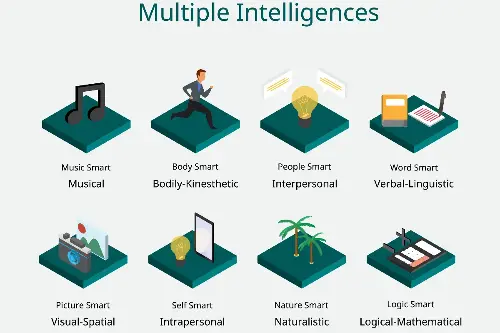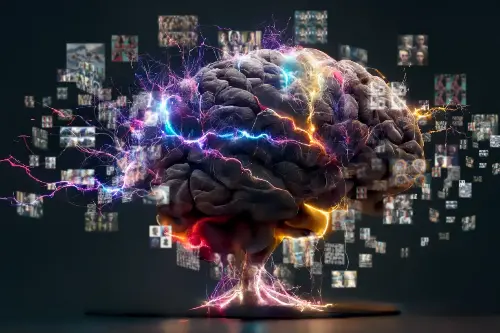Intelligence is a complex and multi-faceted aspect of human cognition, often encapsulated in the popular imagination by the concept of IQ, or intelligence quotient. Yet, the understanding of what intelligence truly means is steadily evolving beyond just IQ scores. The human brain is an intricate tapestry woven from various cognitive strands including memory, attention, and reasoning, among others. Through a combination of scientific research, psychological insights, and educational trends, we are beginning to see that intelligence is much more than a numeral on a scale.

The Limitations of IQ Testing
IQ tests have long been the gold standard for measuring intellectual prowess. Developed in the early 20th century, they were employed as tools to assess educational aptitude and predict academic success. While they offer a controlled method to evaluate a range of cognitive abilities, such as logical reasoning, mathematical skills, and verbal comprehension, IQ tests are not without their critics.
One of the primary criticisms is that IQ tests offer a narrow perspective on intelligence. They often neglect to account for creativity, emotional intelligence, practical problem-solving, and motor skills, all of which are crucial components of overall cognitive ability. Additionally, critics argue that these tests can be culturally biased, favouring individuals from certain educational and social backgrounds.
Beyond IQ: The Theory of Multiple Intelligences
In the late 20th century, psychologist Howard Gardner proposed a revolutionary idea that challenged the singular view of IQ-based intelligence. His theory of multiple intelligences posits that intelligence is not a single general ability but rather a spectrum of eight distinct modalities: linguistic, logical-mathematical, spatial, bodily-kinesthetic, musical, interpersonal, intrapersonal, and naturalistic.
Gardner's theory suggests that each person has a unique blend of these intelligences, influencing their learning style and skillset. For example, someone with high interpersonal intelligence may excel in social situations and demonstrate empathy, while another individual might have a high spatial intelligence, proficient in thinking about objects in three dimensions.

Emotional Intelligence: A Key Player
Daniel Goleman brought emotional intelligence, or EQ, into the limelight in the 1990s. EQ refers to the ability to perceive, control, and evaluate emotions in oneself and others, to communicate effectively, and to navigate social complexities. Studies have shown that individuals with high emotional intelligence tend to have better mental health, job performance, and leadership skills, suggesting that EQ is an important factor in personal and professional success that IQ tests might overlook.
The Role of Creativity and Practical Intelligence
Another aspect of intelligence that goes beyond the realm of IQ is creativity. Creativity isn’t easily quantified, but its role in problem-solving and generating innovative ideas is undeniable. It's about how individuals apply their knowledge in novel ways and adapt to new situations.
Furthermore, psychologist Robert Sternberg introduced the concept of practical intelligence, which is sometimes referred to as "street smarts." This form of intelligence encapsulates the ability to navigate complex real-world problems and apply knowledge in practical contexts. Unlike the abstract reasoning measured by IQ tests, practical intelligence is about applying skills in everyday situations, often without theoretical or formulaic underpinnings.

Cognitive Neuroscience: Unravelling the Brain’s Mysteries
Advancements in cognitive neuroscience continue to uncover the physical underpinnings of intelligence in the brain. Imaging techniques like functional MRI (fMRI) allow scientists to explore how different regions of the brain collaborate during problem-solving and learning tasks.
These studies offer a more nuanced view of intelligence, indicating that it is not located in a single part of the brain but is a distributed system. Neuroplasticity, the brain's ability to change and adapt in response to new experiences, further demonstrates that intelligence can be developed and is not a fixed attribute.
The Importance of Contextual Intelligence
Lastly, understanding intelligence also demands a look at contextual intelligence – the ability to grasp the nuances of different environments and adapt one's behaviour accordingly. Contextual intelligence helps individuals navigate the subtleties of social dynamics, cultural norms, and the specific demands of their environmental settings, leading to better decision-making and interactions.

Conclusion
In conclusion, while IQ scores can provide insight into certain cognitive abilities, they represent just one part of a much larger intelligence story. From Gardner's multiple intelligences and Goleman's emotional intelligence to the roles of creativity, practical intelligence, and contextual understanding, it's clear that human intelligence is a rich, varied, and dynamic construct.
As research and theoretical frameworks continue to broaden our understanding of the brain and cognition, the focus is shifting towards a more comprehensive approach, appreciating the complexity and diversity of human intelligence. Embracing this holistic view not only aids in personal development and educational strategies but also fosters an inclusive society where everyone's unique cognitive gifts are acknowledged and nurtured.
